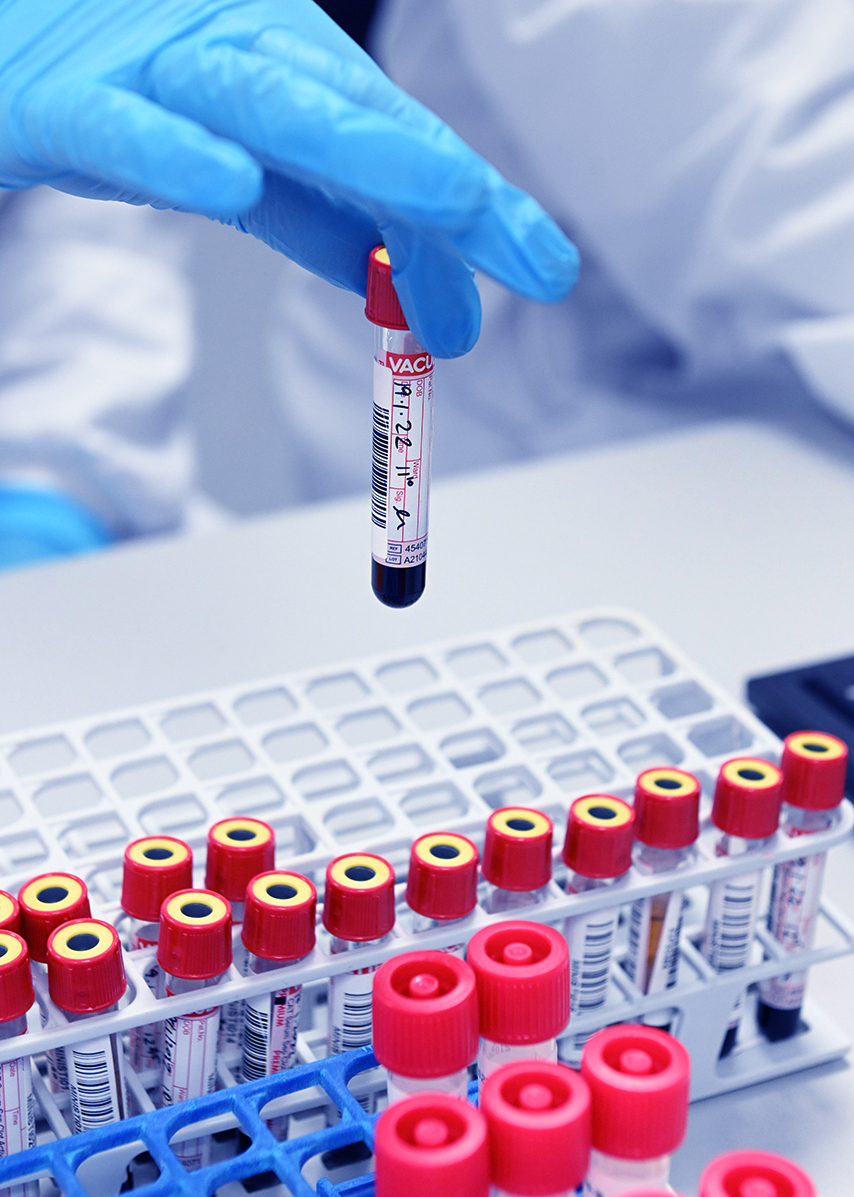It is involved in many chemical activities including muscle contraction, nerve conduction and maintenance of electrolyte balance in the body. Hyperkalaemia is suspected especially if the serum sodium and calcium levels are normal, with severe hyperkalaemia occurring > 6.5mmol/L. Hypokalaemia is a serum potassium concentration below 3.5 mmol/l with severe hypokalaemia occuring < 2.5 mmol/L. An ECG is recommended especially if there is a sustained reading of potassium of > 6 mmol/L to outrule any ECG changes, or if potassium is < 2.5 mmol/L to detect digoxin toxicity.
Potassium

Potassium
Potassium, or K+, is an essential electrolyte and is the most abundant intracellular cation in the body.
Hyperkalaemia
Common causes of hyperkalaemia include:
- Renal due to decreased excretion or drugs ( Oliguric renal failure or K+sparing diuretics).
- Metabolic acidosis.
- Artefact – haemolysis of the sample.
- Adrenal Insufficiency – e.g. Addison’s.
- Drugs (ACE-inhibitors, B- blockers, NSAIDS, Iatrogenic K+ ).
- Rhabdomyolysis.
Hypokalaemia – overall causes are driven by inadequate potassium intake, a decrease in the total body potassium and a redistribution of electrolytes.
Prolonged decreased intake occurs with anorexia, malnutrition, dementia, extreme low calorie high protein diets for rapid weight loss, patients receiving TPN in hospital or inadequate K replacement via IV fluids.
Potassium loss: The most common causes are dependant on the source of the depletion.
- Renal causes include
- Medications (thiazides or loop diuretics).
- Metabolic acidosis or alkalosis.
- Hypomagnesium.
- Hyperaldosteronism (Conns, Cushings, renal artery stenosis).
- Renal tubular acidosis.
- Hypomagnesiumia.
- Interstitial renal disease ( SLE, Sjogrens).
- GI causes
- Severe diarrhoea.
- vomiting.
- Pyloric stenosis in infants.
- Laxative abuse.
- Structural loss: fistula.
- Dermal losses
- excess sweating – prolonged exercise.
- severe burns.
- cystic fibrosis patients.
Redistribution of electrolytes is rare. It is most commonly caused by medication (insulin overdose, glucose administration, decongestants, salbutamol), alkalosis (metabolic or respiratory), MI, thyrotoxicosis, refeeding syndrome.
Case Study
Delivering True Innovation
Our Services




5mL venous serum or plasma
Enfer Medical
Tests/Assays
Enfer Medical offers Ion Selective Electrode (indirect) technology for the quantitative assay for Chloride, Sodium & Potassium. This test is CE-IVD certified.


Patient
Request Form
For clients using the Enfer Medical Client Portal, the Enfer Medical Patient Request Form (PRF) will be generated when you have completed your “Test Request” within the portal linked below.
Please note that samples suspected of containing high risk pathogens such as Mycobacterium tuberculosis should be clearly identified on the form and packed separately from other samples.



Results are available next working day.
This assay is available seven days a week.
Packaging
The packaging/preparation of samples for delivery to the laboratory are required to be in adherence to all national regulations for the safe transport of biological materials. HSE guidance can be reviewed HERE.
There are specific packaging instructions and labelling requirements requiring triple packaging including:
- Primary leak-proof container – tube or vial containing the sample.
- Secondary watertight container, with absorbent material, intended to protect the primary container.
- Outer container protects the secondary container.
- Patient Request forms must be placed between the secondary container and the outer shipping container.
Further information on the packaging/preparation of samples for delivery to the laboratory is contained within the Enfer Medical Laboratory User Manual which clients are provided with.


Storage & Stability
Specimens must be tested within 1 day of collection if spun and stored at 2-8°C. Specimens must be tested within 4 hours if unspun.


Samples
In addition to the packaging of samples, the transport/delivery of clinical samples to the laboratory is required to be in adherence to all national regulations for the safe transport of biological materials. Enfer Medical provides a fully compliant logistics service, aligned with clients’ testing requirements.
Prompt transport of specimens:
To ensure prompt testing of samples and release of results within the published test turnaround times, samples should arrive to the laboratory by 18:00. Test turnaround time is measured from receipt of the sample at the laboratory until the time the authorised results are reported to users.
of Samples
In rare cases specimens may not be suitable for testing on arrival to the laboratory. In that case the sample will be rejected at the receipt stage and the service user will be notified immediately and an explanation as to why the sample could not be processed will be provided. Reasons why samples cannot be processed include but are not limited to:
- Samples received beyond the stability limits and/or not at the correct temperature indicated for each test.
- Incorrect sample type received.
- Leaking samples, sample not received or sample insufficient for analysis as stated below within sample requirements.
- Non-compliant samples or request forms i.e. those missing sample date information, missing sample test request and/or missing sample site/type information.
- Samples received without the necessary patient identifiers.
Our Services




Quantitative results for Potassium are reported in numeric value in mmol/L. Please contact us for more information on the reference ranges used at Enfer Medical.
Critical results are communicated in accordance with the Communication of critical results for patients in the community- national laboratory handbook CSP041/2019
Accessing
Your Results
Following receipt at the Laboratory, results should be available on the next working day and will be reported to the referring clinician via the Enfer Medical Client Portal or in a format agreed with clients.
Established clients can login to the portal using the link above.




